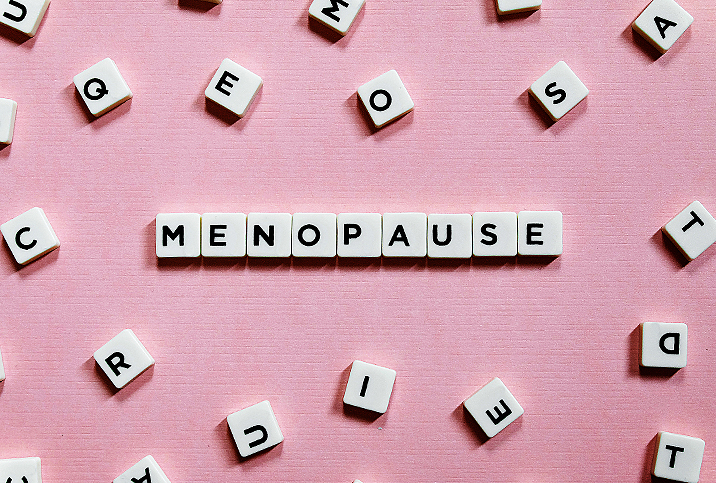Men and Menopause: Tips for Coping and Helping Her Cope

Menopause brings new variables to a woman's life and can create noticeable character changes in your partner. You may have heard references about hot flashes, but there are actually dozens of potential symptoms associated with menopause, and keeping up with all the changes a partner is going through might feel like a full-time job.
Just keep in mind the experience is worse for her and even harder for her to predict—it can even feel like she's adjusting to an entirely new body.
Being sensitive, present, active and aware of how the experience affects both of you is all it takes to be a good and supportive partner. Give her space and maintain space for yourself as well, and your partnership will survive what can be a very trying time for a couple.
Here are a few aspects to consider when it comes to coping with menopause, together:
1. Accept education
Menopause is a time of learning for your partner and should be for you as well. As she receives new information from her doctor and individual research, be ready to absorb it, give credence to her personal observations, and be grateful she's willing to share with you.
Don't be shy about doing your own research on the side. There is a wealth of information about what to expect during perimenopause and menopause, and though it may differ from person to person, this information can help you prepare. Don't fall into the trap of giving unsolicited sermons or directives on how she can take care of herself, though. The less you force your observations and interpretations onto her, the more likely she is to invite you into the discussion and seek your help.
For that to happen, you've got to make space for such interactions.
2. Create a healthy home space
You probably know what methods work in your home and relationship for fostering a positive and healthy environment, so don't hesitate to shift those strategies into action.
Some partners may want to embrace a leisurely lifestyle during menopause, in which case this would be a great time to step up and help with the thankless jobs of cleaning, yardwork, shopping and preparing meals. Other partners may want to keep working on those tasks because they feel routine is helpful in dealing with the onslaught of emotional turbulence and physical symptoms, such as chronic pain, digestive issues or muscle tension. Every woman is different and copes differently, but that doesn't mean you shouldn't offer to lend a hand. It'll keep you close, and it'll get everything done quicker.
Your most important job is to listen and learn. Small expressions of support and surprise gestures of kindness can go a long way toward easing tensions and soothing discomfort. Other times, grand gestures may be necessary, but you get the idea.
3. Show your support with actions and unconditional love
During menopause, your partner might desire support in ways you haven't provided before. Because the menopause experience is new, she may not always feel capable of asking for things she wants or needs.
Open offerings are a good way to determine what your actions should be. If you perceive she's overwhelmed by information from her doctor, offer to join during a visit or accompany her for the bus ride or drive there. It could make the process easier for her to handle if there's something you can do to alleviate any aspect of these potentially stressful chores.
The important thing is to express your love and support through solicited or welcomed behaviors, rather than empty statements. Put your money where your mouth is: If you really do want to provide support, then you must follow up on the resulting requests or ideas. She may not ask twice.
4. Be aware of your own changes
Menopause is, at the most basic level, a process when the body's production and distribution of hormones changes in rapid and hard-to-track ways. For men, this changing biochemistry usually results in decreased testosterone levels, which can have parallel effects, such as fatigue, sexual issues or a general feeling of weakness, to those your female partner may be experiencing.
It's inaccurate as well as insensitive to imply the two of you are going through the same process, so never try to equate the two—as a topic of conversation, it's a nonstarter that'll get you little sympathy.
However, as you might be going through your own physical and mental changes, give yourself time to rest and take whatever actions necessary to keep yourself up to the challenge of helping and supporting your menopausal partner. Testosterone treatments and increased supplement intake may be all you need to account for the change in your biology. If you recognize the signs of low-T, your doctor should be able to give you good advice on your next steps.
















